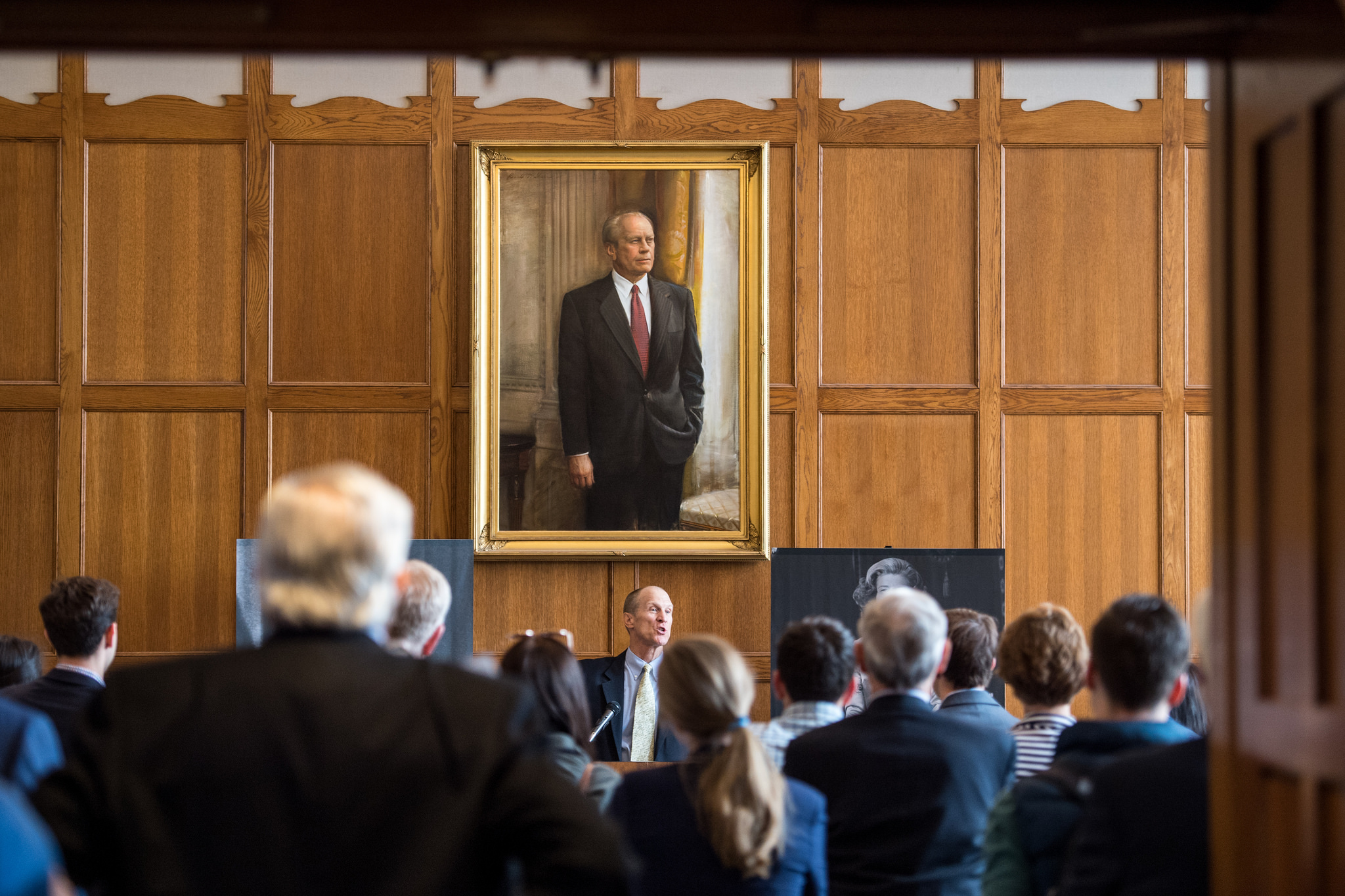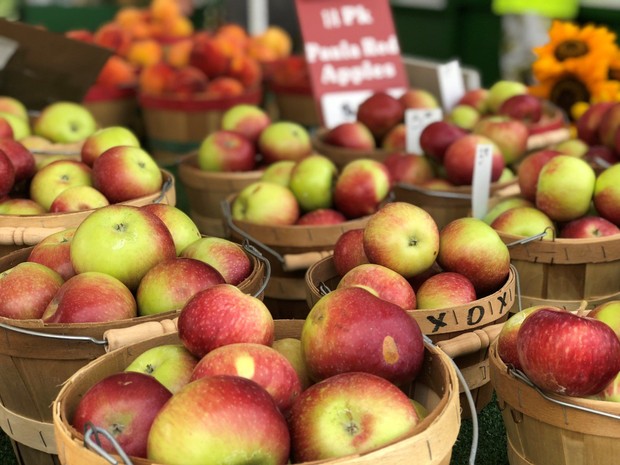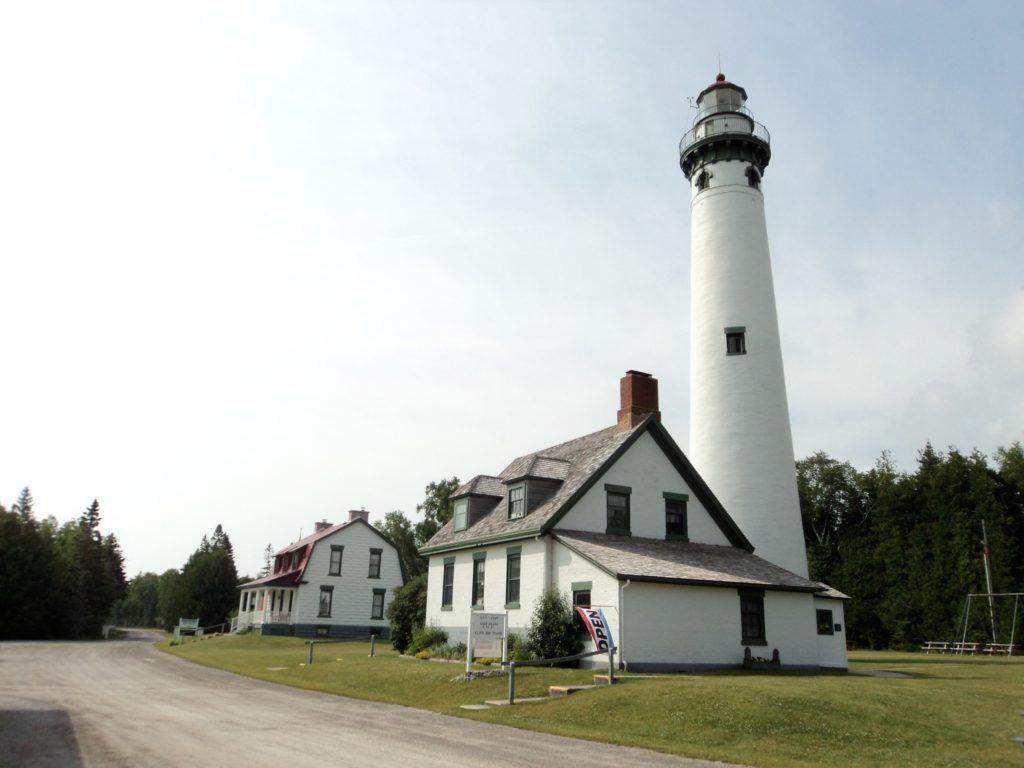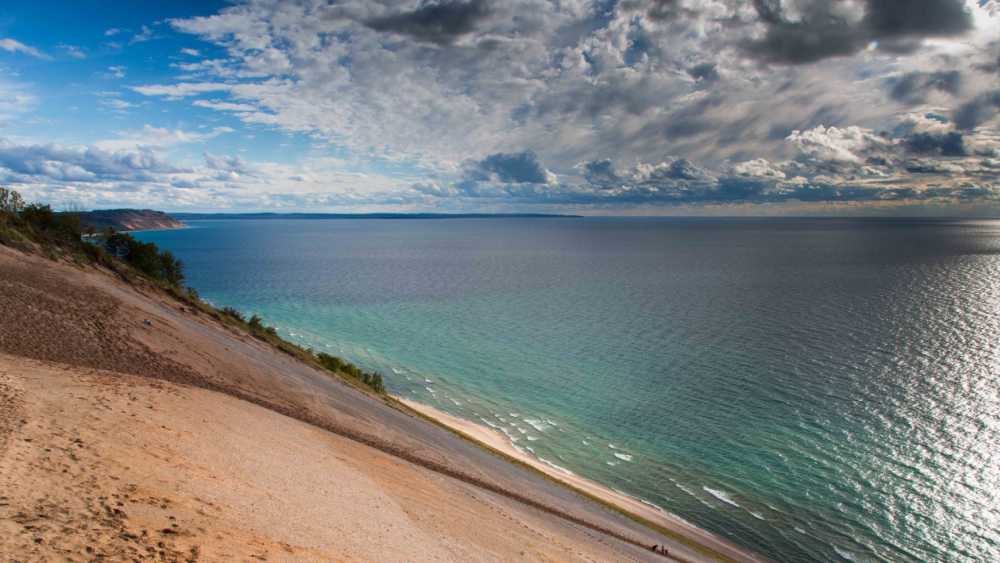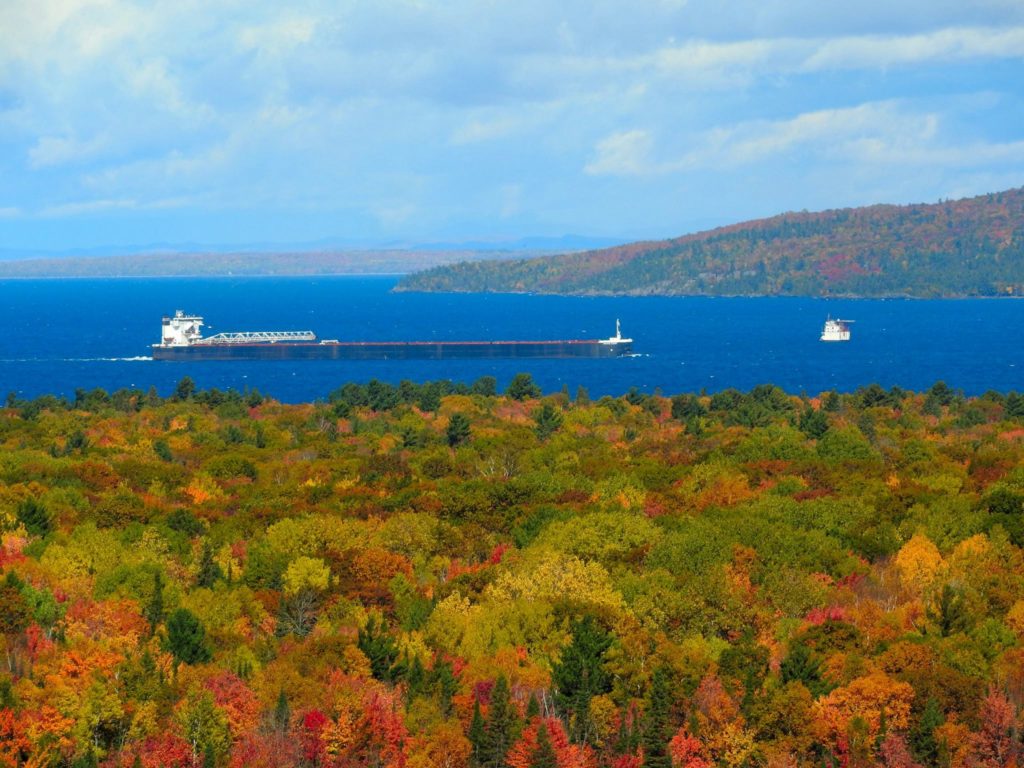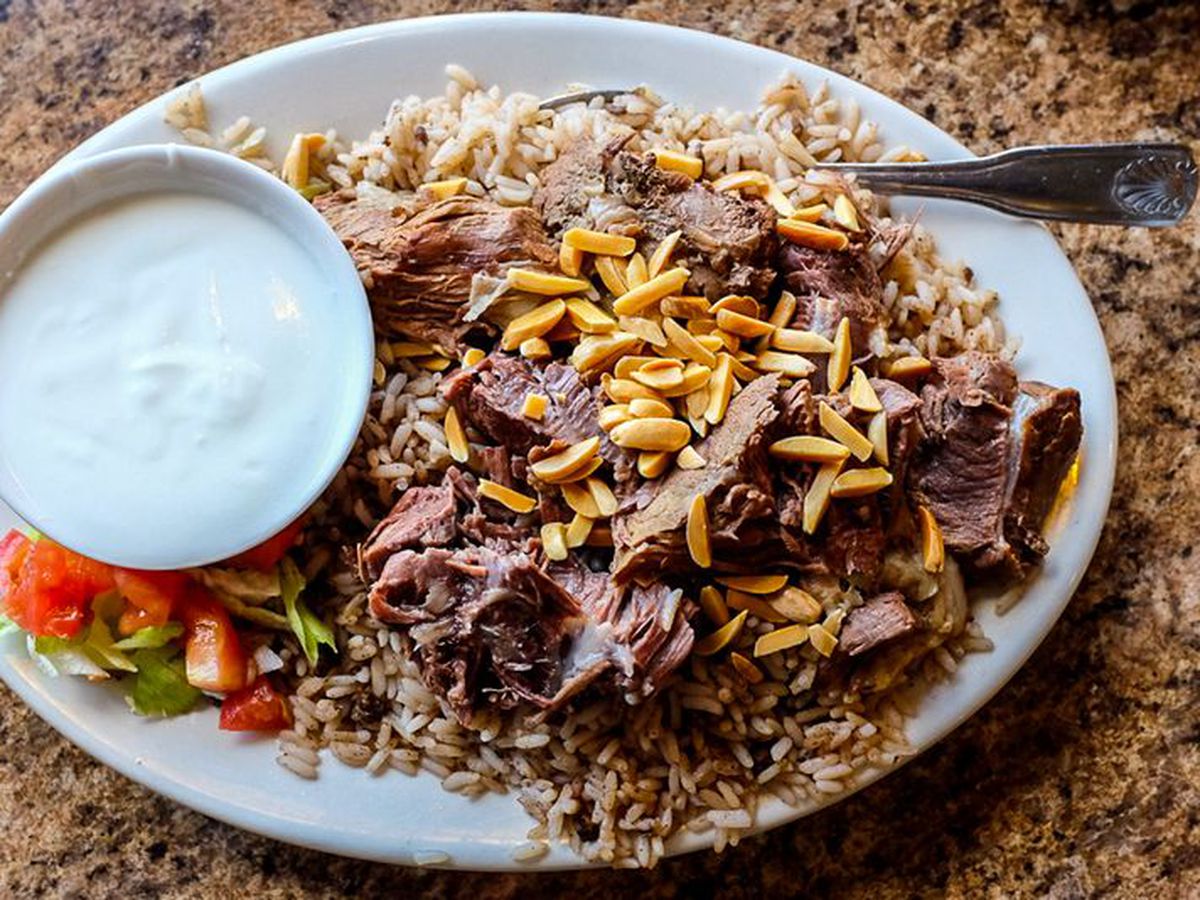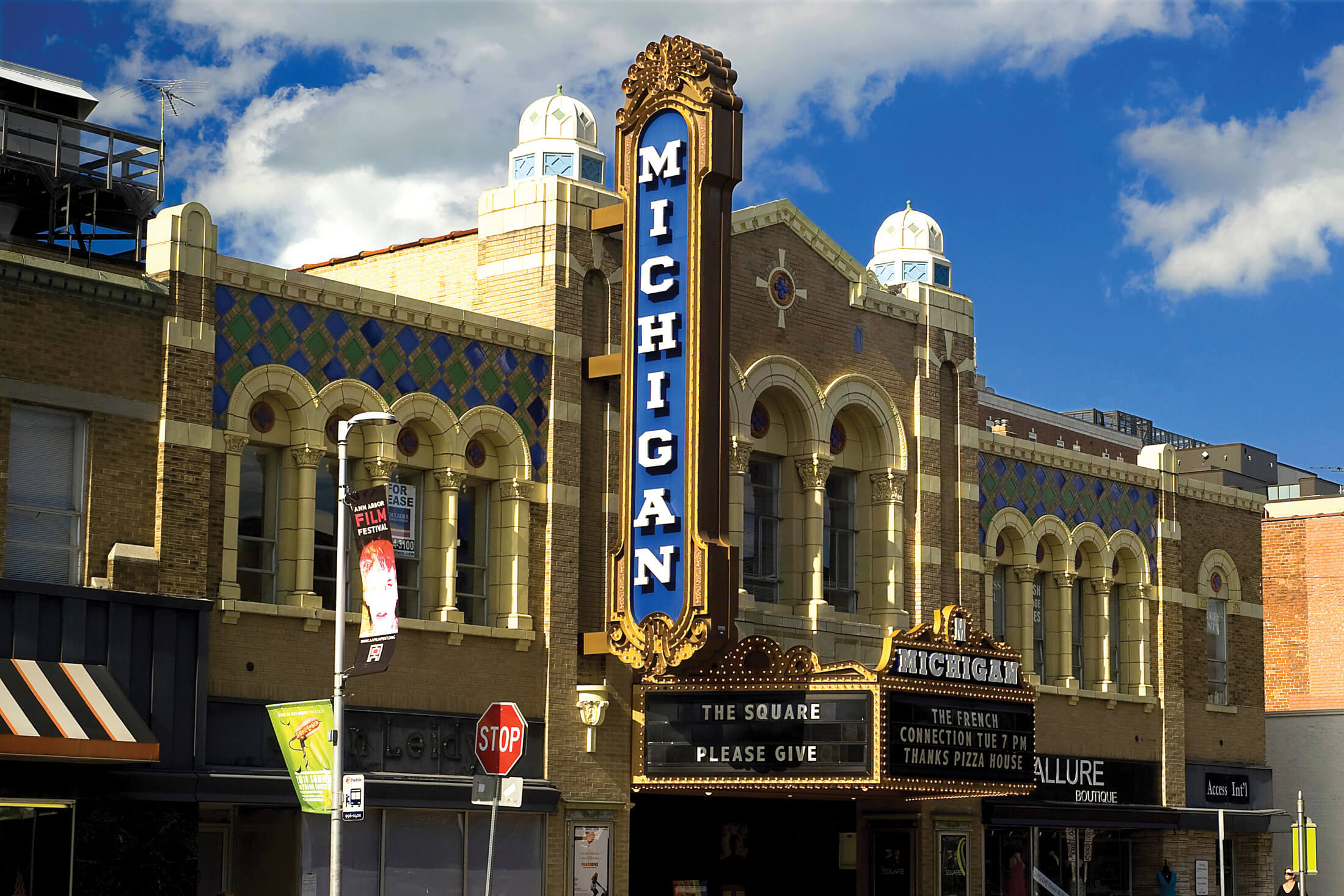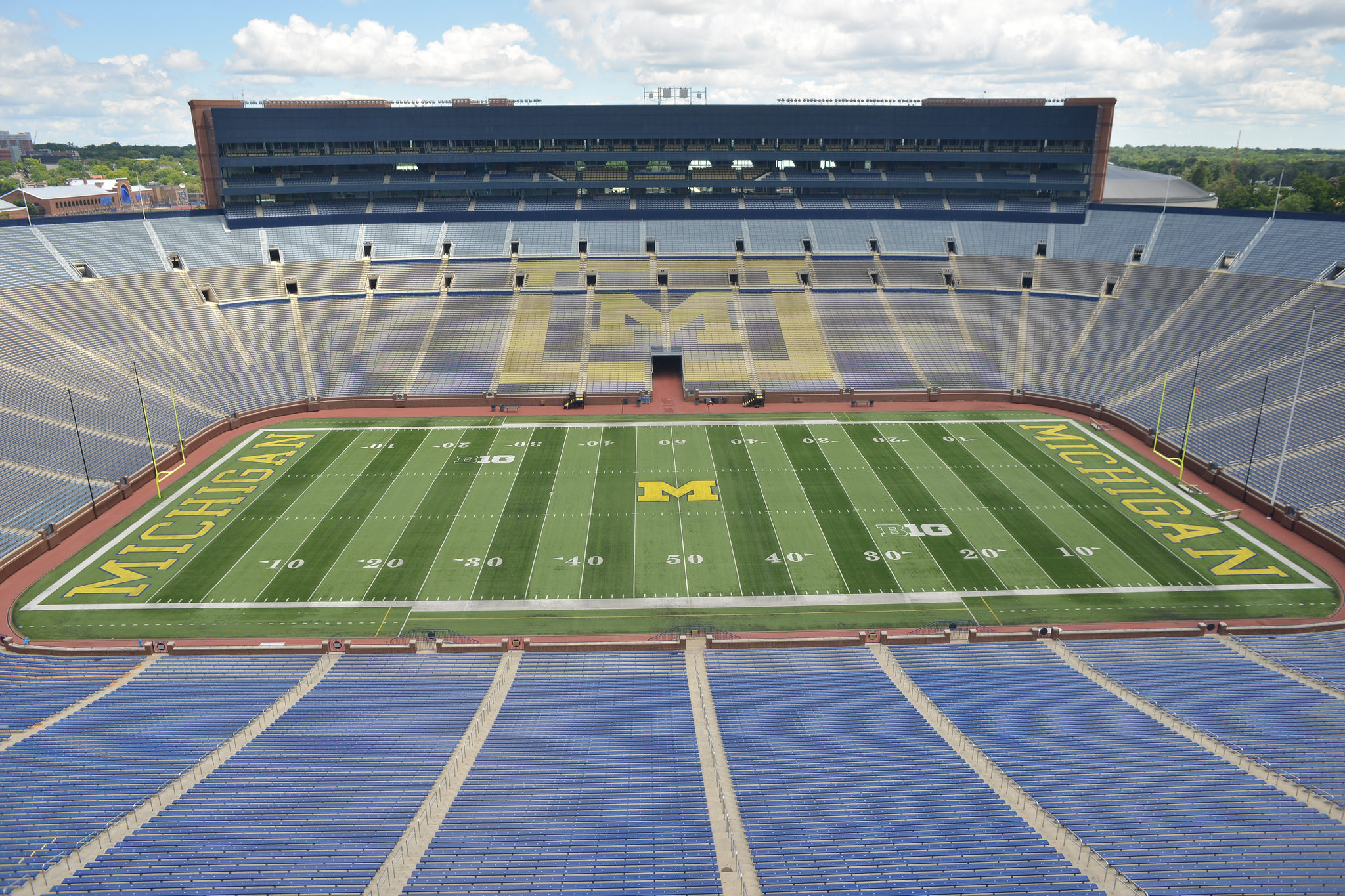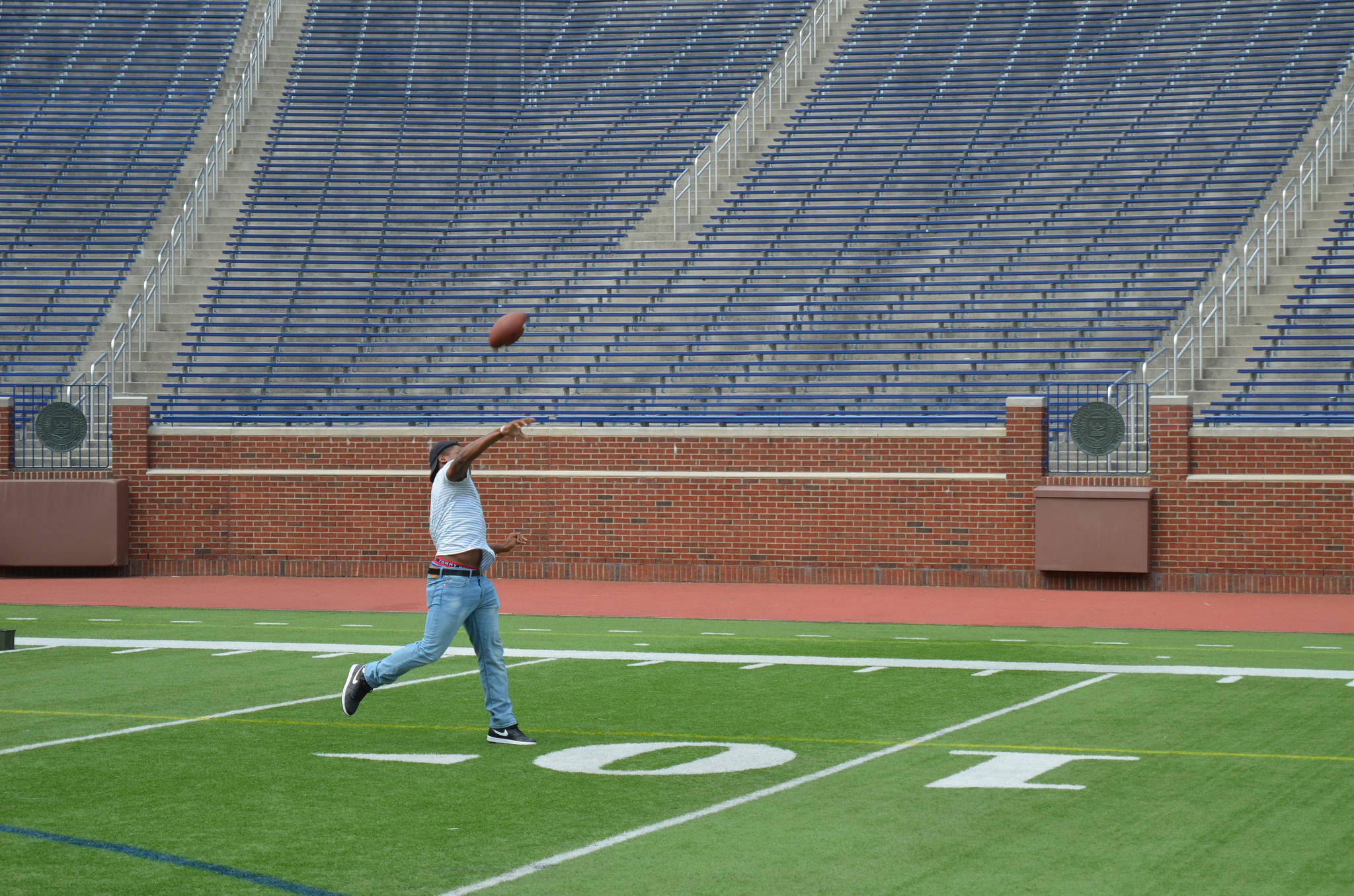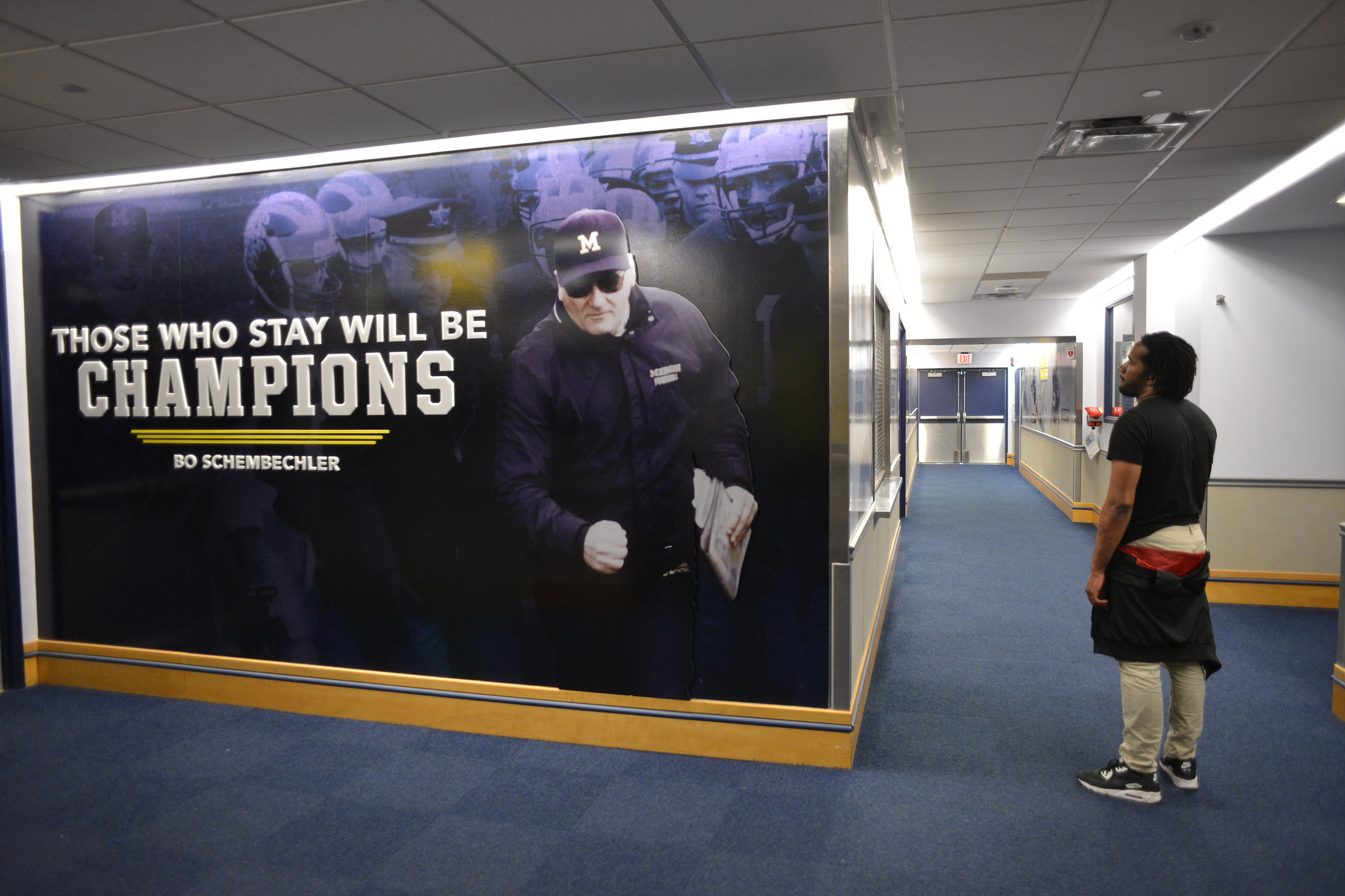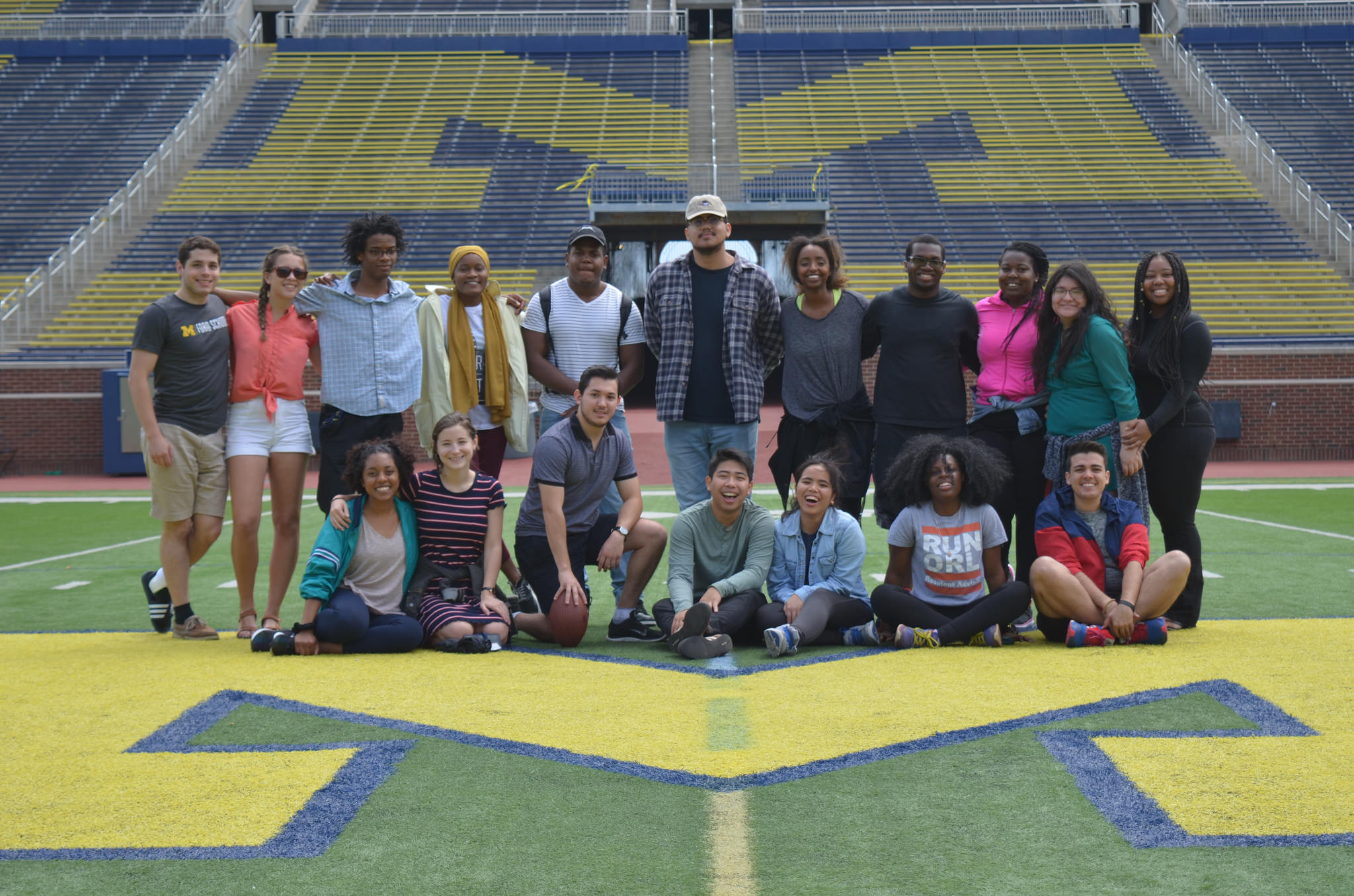Every year, the Ford School’s Students of Color in Public Policy (SCPP) organization coordinates a Pipeline Initiative to assist applicants in completing applications for the Ford School’s graduate programs. While the first round has passed, the second round applications for the Pipeline are open until the end of the week!
As you continue your application process, we decided to talk to two former Pipeline Applicants who are now Ford School masters students and current Pipeline Mentors. Check out our conversation with Alex Weaver and Emma Dolce! And at the bottom, check out our instructions for participating in the Pipeline Initiative.
Why did you sign up for Pipeline when you were applying to Ford?
Alex: While I felt I knew the rules of the road for my MBA application, I was relatively lost on how to compose an Academic Statement of Purpose, or a Personal Statement. Good thing I asked for guidance too, because after submitting my draft of my Personal Statement to Pipeline, my mentor (very politely) told me that what I had written sounded like an Academic Statement!
Emma: I signed up for the Pipeline Initiative because it seemed like a good way to get insider help on my application and connect with a current Ford student. Visit days are great but if you can’t make it to campus it can be hard to get “face time” with actual students. My mentor was super helpful in explaining the ins and outs of the program and also giving me and a better picture of the Ford School and greater UM community.
What made you decide to volunteer to be a Pipeline mentor?
Emma: I signed up to be a Pipeline mentor because I wanted to give back and help other students with the application process and share what I love about the Ford community. Applying to any kind of grad program is daunting and exhausting and overwhelming and I hope that by being a mentor I can make things just that much easier for another student.
Alex: Paying it forward. I might not be here without the wise guidance of my Pipeline mentor.
What do you think makes the Pipeline Initiative important?
Alex: All applicants deserve equality of opportunity, in terms of being armed with the insight to be able to put their best Ford application forward. Pipeline helps with that.
Emma: The Pipeline Initiative is important because it can help people who might not be very familiar with the grad school application process make the most of it. Like I said, applying to grad school is a big undertaking and I think it’s important for programs to make the process as accessible and equitable for everyone as they possibly can. The Pipeline Initiative is just one small piece of that accessibility.
What advice would you give to someone who’s applying for a graduate program at the Ford School (or anywhere else)?
Emma: Make a plan and stick to it. I wrote out a little post-it note what I was going to do and when (July- research programs and start studying for the GRE, September- contact references, October- take the GRE, November- write essays etc.) and I stuck it next to my bed so I would see it all of the time (yes, this is super nerd status but I stand by it!). This helped me stay on task and see the bigger picture. I also think keeping your self-confidence high is really important. The application process can be really draining especially when you’re working or also still in school. It’s important to remind yourself you are talented and accomplished and you totally got this!
Alex: If possible, based on your circumstances, visit, sit in on a class, and meet or talk with current students and admissions staff. For any graduate program, online research can only take you so far.
What is SCPP Pipeline?
The goal of the Pipeline Initiative is to help prospective students navigate the application process and to provide the student perspective on being a member of the Ford School community. We particularly welcome inquiries from students of color to help increase the diversity in our programs.
How does it work?
This outreach program pairs a prospective student, like yourself, with a current graduate student who will act as a mentor and provide guidance on the application process. For example, mentors can read through your personal statement and provide feedback on your resume. Current students will be paired with applicants based on a variety of factors, i.e. policy interests, undergraduate institution, career goals, etc.
What’s the timeframe?
Mentors will be provided to prospective students during two submission rounds. All application materials must be received by the application deadlines to be paired with a mentor on the corresponding Match Date. We will do our best to match prospective students who submit their application after the application date.
Pipeline Application Deadline:
|
|
Round 1: Friday, November 2, 2018
|
Wednesday, November 7, 2018
|
Round 2: Friday, November 30, 2018
|
Wednesday, December 5, 2018
|
How do I Register for Pipeline?
1. Complete the following survey to help us pair you with a student mentor:
2018 Pipeline Initiative Registration Form
2. For feedback purposes, submit your personal statement draft as a word document, saved as “FullName_Pipeline_PPS.doc”, to amricha@umich.edu with the subject line: “Pipeline Personal Statement: FullName”.
If you have any questions, please email SCPP’s Pipeline Chair, Audrey Richardson, at amricha@umich.edu.
Please note: The Pipeline Initiative is a voluntary program under the leadership of the Students of Color in Public Policy (SCPP). Participation in the Pipeline Initiative does not guarantee admission into the MPP or MPA programs.



